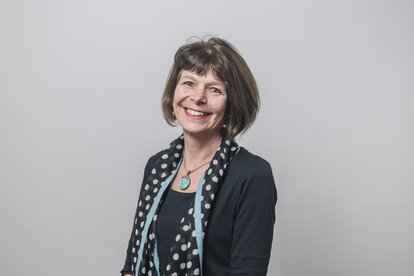This is the question facing many women in Sri Lanka today, women who find life at home difficult and who are attracted by the prospect of change, and seeing the outside world. The migration of women as domestic workers from Sri Lanka to wealthier countries, notably the Gulf States, has mushroomed over the last 30 years. Current figures suggest that migrant workers – who number some 290,000 per annum, around half of whom are women – generate at least US $ 7 billion per annum in foreign revenue to the country. Yet there are inevitably social costs from long term family separations, and increasing concerns over the well-being of children left behind. Recognising this, the government of Sri Lanka is seeking to reduce social disruption by encouraging the migration of men, especially semiskilled men to countries such as South Korea and Malaysia, and discouraging the migration of unskilled women workers.
Our project on migration
It is against this background that the Safe Labour Migration Project operates. Last week, staff in our Zürich office had the chance to learn more about its activities at first hand through the visit of project officer Ranjan Kurian, with whom I chatted afterwards. Ranjan noted that the safe migration programme, which is funded by SDC in cooperation with the government of Sri Lanka, operates in a number of parts of the country – but the part implemented by Helvetas focuses on the district of Galle, in the South West. Accompanying social workers on household visits, Ranjan has the opportunity to meet many rural families in this area of small, intensively cultivated home-gardens, paddy fields and coastal coconut plantations. Often those women seeking to migrate are not the poorest in economic terms, but individuals who want something different in their lives – not only an increased income, but in many cases, an escape from domestic violence. However, they may find that they are “jumping from the frying pan into the fire.” According to official statistics, annually some 1,500 women complain of physical and sexual harassment in their host countries. Project experience indicates that under-reporting is the norm, and that the true extent of the problem is far greater.
Supporting would-be migrants in making the choice that’s right for them
The project does not take a stance on whether migration is a good or bad strategy. Neither does it focus particularly on women or men. Rather, it seeks to support all would-be migrants to make informed decisions: to know their rights, to prepare properly, to have a clearer idea of what awaits them, and to be aware of pitfalls that they can avoid. With regard to social problems that may arise in migrants’ families, popular discourse tends to focus on the lack of a caring mother, rather than how to support men to improve their parenting skills or generate wider community engagement. The project has started holding community level meetings to discuss such issues, but so far has found that women are more likely to participate than men, whatever time of the day meetings are held. Reasons given by men are that they have to work (usually wage labour) during the day, and in the evening they are tired. This stands in stark contrast to community meetings in other countries and contexts, such as discussions on the allocation of resources, where men tend to be the main and most vocal participants. Yet the husbands of women migrants are not averse to discussing family problems in more private settings. The project provides a psycho-social consultant, who visits men individually and finds them very open to talking about the difficulties that they face when left with responsibility for their children, and the temptation to turn to alcohol.
Inevitably, returning women also have psycho-social problems in adjusting back into their former lives, whether or not they have been mistreated in their host country. They too welcome the opportunity of counselling – and in some cases, of legal advice from trained paralegals on how to seek redress in cases of abuse.
So would it be better to simply advise against migration, at least of un-skilled workers, and suggest alternative livelihood strategies? Ranjan demures. “Each individual should have the right to decide about migration for themselves, of course in discussion with their family members. It is not for us to say what they should do – but to help them make a wellinformed decision.”


